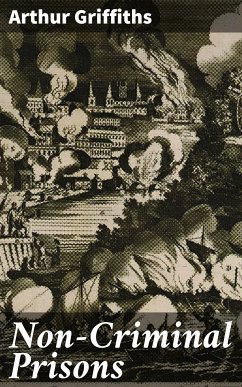In "Non-Criminal Prisons," Arthur Griffiths explores the complex and often contentious nature of penal reform and the humanitarian implications of incarceration. Written in the late 19th century, the book delves into the philosophy behind prisons designed not for punishment but for rehabilitation and moral education. Griffiths employs a rigorous, analytical writing style, supported by vivid case studies and a historical perspective that examines the evolving attitudes towards prisoners and the justice system. His work situates itself within the broader context of the social reforms of the Victorian era, challenging prevailing notions of criminality and emphasizing the need for compassionate reform. Arthur Griffiths, a prominent writer and journalist, possessed a deep-seated interest in prison reform, which was likely influenced by his experiences visiting various penitentiaries. His background in law and his role in advocating for social change informed his perspectives on justice and morality, leading him to assert that prisons should serve as institutions of redemption rather than mere detention. Griffiths's unique blend of personal insight and scholarly research provides a compelling narrative that is both informative and thought-provoking. This book is highly recommended for scholars, reform activists, and anyone interested in the evolution of the penal system. Griffiths'Äôs insights remain pertinent today, as they resonate with ongoing discussions about the purpose of imprisonment and the ethical treatment of offenders. "Non-Criminal Prisons" invites readers to reconsider the fabric of justice, making it an essential read for a contemporary audience.
Dieser Download kann aus rechtlichen Gründen nur mit Rechnungsadresse in A, B, BG, CY, CZ, D, DK, EW, E, FIN, F, GR, H, IRL, I, LT, L, LR, M, NL, PL, P, R, S, SLO, SK ausgeliefert werden.









